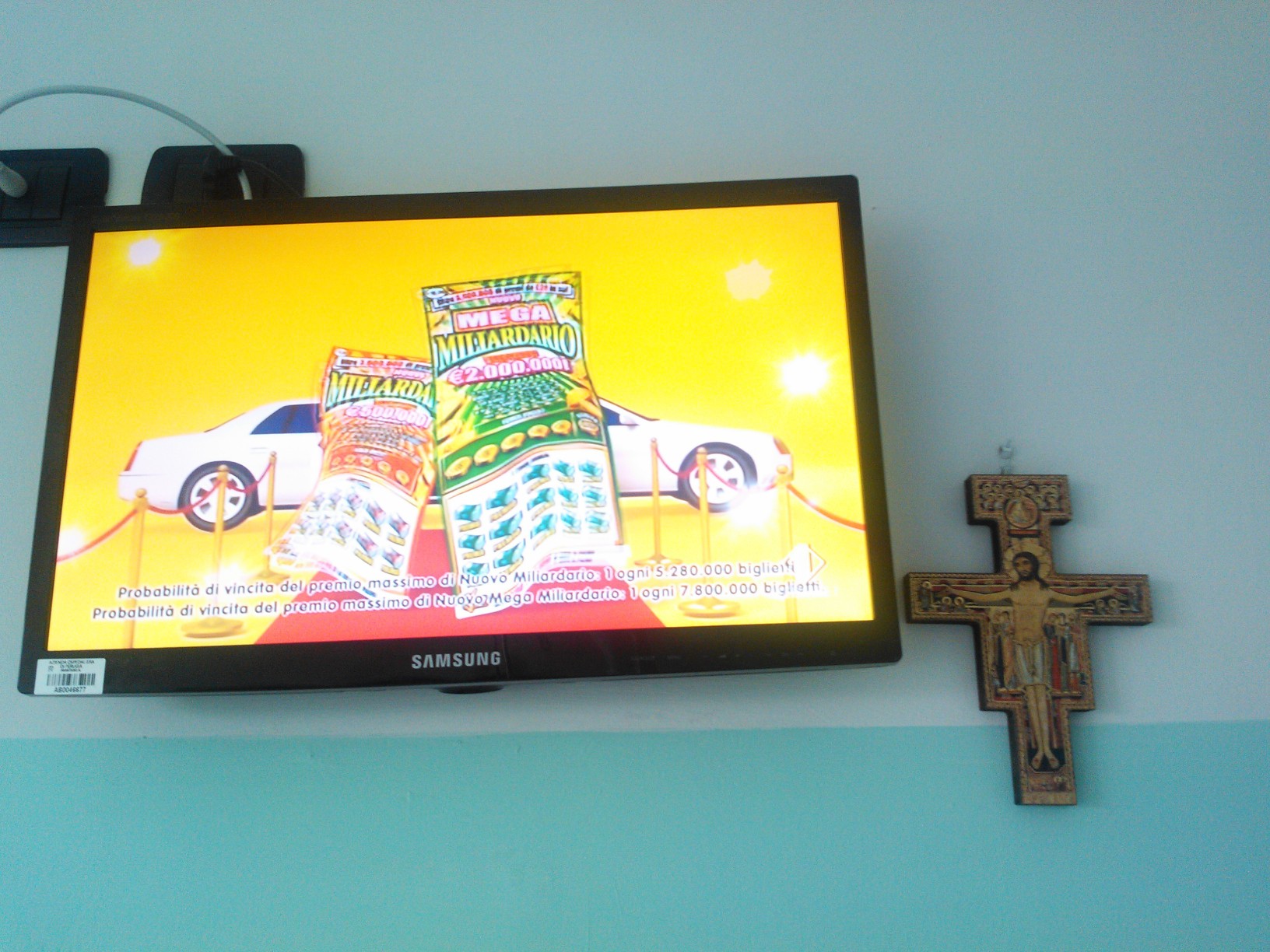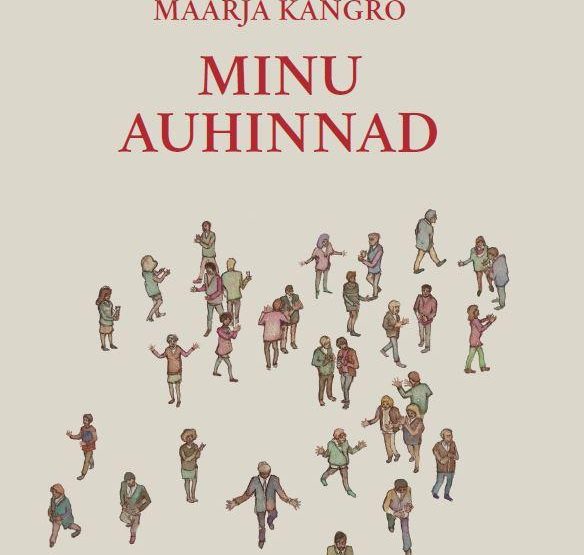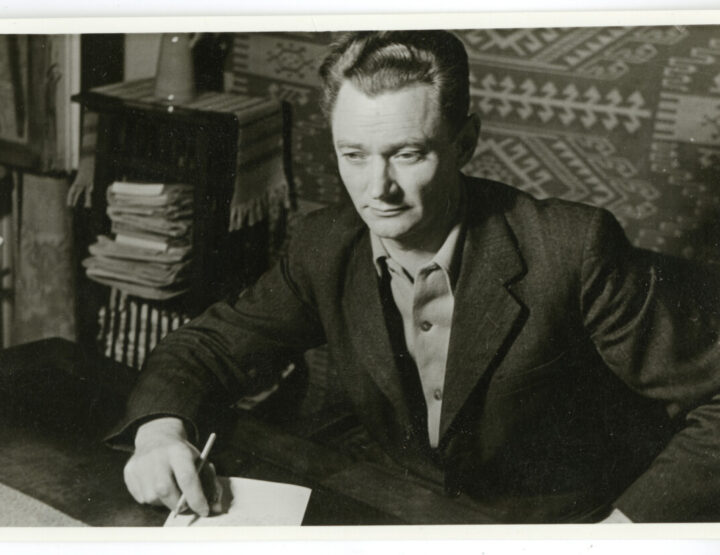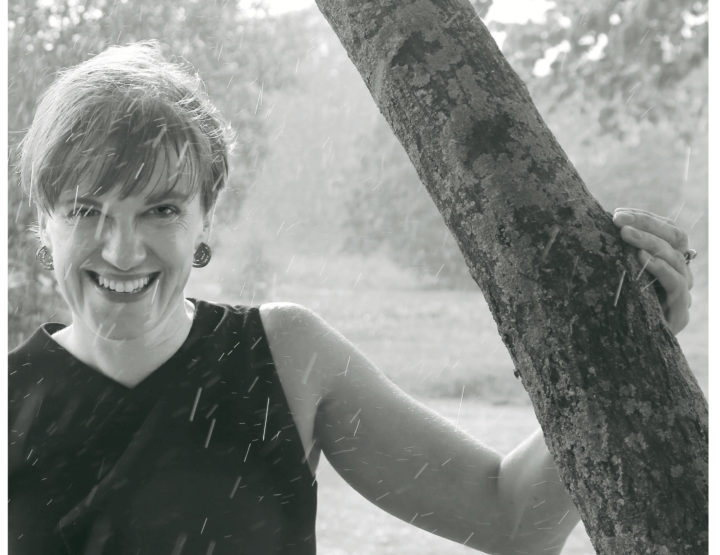Wednesday, January 28th, 2015, ~3:00 PM
My throat hurt and felt swollen. At first, I thought I’d caught a cold from the open window, but then realized it must have been from the retching. Or maybe the Cytotec? Probably more the retching, from vomiting myself dry.
The nurse Margit reentered the room, stood next to my bed, and said: “I’m sorry for being so harsh with you. I’ve been told that I can get bossy before, too.”
“It’s fine.”
“That’s just the way I am. I’ve got a big family. You’ve got no choice but to be bossy in a big family.”
“Mm-hmm. No worries.”
“I really do apologize for being so short-tempered.”
“Well, what can you do.”
Perhaps I should’ve been grateful for her having turned my emotions to a frequency of anger and contempt at just the right moment.
The nurse left. I turned my bloody gown over this way and that, and looked at the pictures of the baby that I’d taken on my phone. Jaanus was reclining on the other bed, also tapping away at his phone and checking e-mails. The Venice Biennale was coming up and Rebeka was writing incessantly. I’d promised to whip something up for Jaanus’ piece, too; maybe some arias. Wouldn’t you know it.
I had no inclination to do anything but look at the baby pictures; to repeat and relive her death over and over again—this most recent death, all kinds of death seen and encountered throughout life. Deaths that I have personally witnessed and physically touched, death notices that I’ve received at various points. Wiederholungszwang. It won’t necessarily make you any wiser.
My baby looked much more adult than living three-to-four-year-old butterballs do. A peripheral little being. Humans are even more solemn-looking as fetuses than as newborn babies, although newborns are also somber peripheral figures in their quiet moments. From then on, the development goes further and further towards childishness.
The baby had her arm extended over her head in one picture, her thumb sticking out. It was almost like a little gesture.
But that cranium.
In Isaac Asimov’s short story “The Ugly Little Boy”, a nanny named Miss Fellowes gets so accustomed to the little Neanderthal boy she is raising that when she sees an ordinary boy on the street, the shape of his skull seems almost distasteful. The forehead that arcs forward and the jaw that juts out. My “little girl’s” skull ended at her eyebrows and at her nape, as if someone had sliced it off with a knife. It shocked me anew every time I looked at it—one doesn’t adjust to something like that as easily as to a Neanderthal skull. I looked. Again. And again.
Lacanians and Žižekians would use their own word for it. They’d say: The Thing. It’s the awful Thing itself that I want to see. The hope of capturing the Real. Terrible, impossible jouissance.
And still, endlessly, I sought my truth with repetitive compulsion. Catastrophe, horror, awful misfortune: Look! Look again! Look and seek! Maybe, perhaps, nevertheless, I’ll decipher something at some point—with a revelation, capturing an important detail? Maybe the baby’s face will tell me what it’s all about.
How else but by keeping a close eye on shock can you carve an opening, which will lead to meaning and the blueprint of the cosmos?
But then there was another myth that instructed one to avoid Medusa’s gaze. That’s exactly how Perseus managed to behead her: he saw a reflection of Medusa’s face, but not her gaze itself. Calvino thought Perseus was a first-rate guy who knew how to live. And then there were those three monkeys, wise and imbecilic.
If you seek Medusa’s gaze, you’ll find it. If it exists somewhere, that gaze, then I’ve got to see it, too.
I looked over at Jaanus. He was so much younger than me. Good-hearted, meek. He was certainly doing all he could. What can one really do in this type of situation, anyway?
My experience was impossible to share. Or it wasn’t. I myself don’t support that discourse of inexpressibility, unspeakability, unformulability. But how to share it, then? How can you be certain it’s been shared? What part of the experience is shareable?
“I actually didn’t believe the placenta would be like that,” I said. “Like hamburger meat.”
“The doctor did say it could’ve looked nicer.”
Oh, so that’s how it is. It didn’t even look nice enough, either. Still, I only replied: “I thought it’d be more like a cow pie, smoother-textured. I don’t know why. I’d never actually seen a placenta before.”
That was true. We had two female dogs when I was a kid, but I never got there in time when they had puppies. I don’t know what happened to their placentas—will a house dog eat its own placenta? I remember the first one going berserk after giving birth and running off, disoriented. A malevolent demiurge doesn’t make it any easier for other mammals.
“Some people eat placenta,” Jaanus said.
“Yeah. But I think it should be cooked. They say consuming raw blood is bad for your stomach. That was the main thing they drilled into my sister when she had her tonsils removed. “Make sure you don’t swallow your blood—your stomach won’t take it.””
“But some people still eat it raw?”
“I suppose they do.”
I googled “placenta eating” for a few minutes. It tossed several recipe webpages back at me. Placenta cookbooks, too: one even had a rosy-looking cover picture showing placenta with carrots and asparagus. Placenta lasagna. Pasta Bolognese with placenta.
Enough. My placenta had been taken away, what good was it anymore. I looked at my child again.
“You want to see the baby pictures?”
“No.”
“You don’t have the nerve?”
“I saw her for a second already.”
I was pretty sure he hadn’t. But whatever.
“I’m going to send them to Mac.“ I’ve got the guts to send them to her. She’s one of the few people I’m confident won’t be afraid of them. She’s got the gumption to face the world’s abject dimension.
Mac wasn’t afraid of observing death, wounds, vomit, failure, rot, brokenness. I got the impression she’d never tied himself to the winners’ side; to the side of those frantic people who count on triumph and must steer clear of abject, sludge, muck, and gruesomeness, just in case they seep into life’s ordinary fibers. To those people, who shouldn’t look straight at Medusa. Whose world is made up of the things that are viewed, and the things that are not. And so forth.
Oh, that superstition of decency and appropriateness: maybe it’ll all be easy for me if I don’t look! Maybe it will, but maybe it won’t.
It’s possible that Mac had become more compromising since her daughter’s birth, of course… but she hadn’t.
The first baby picture: her beautiful arms folded over her chest, her beautiful collarbone. A little finished person against a background of green medical fabric. Share, via Google Mail, add file, add file, add file.
What would happen if all artists, if all humans, dared to forge a connection with the abject ? Would the world be a better place? One without the denial of shit? Not everyone who dares to forge a connection with the abject , pain, and horror (or who are simply forced to do so) want to talk about it. What would happen if they did?
Some do.
I realize there’s a degree of narcissism to this, too: in the display of the abject, an open wound, and trauma. Wasn’t it 17 Narcissus who yelled: Oh, I’ve encountered pain, death, and shit; and now, I want you to take part in it, too! I’ll douse you in blood and pus!
Naturalist honesty—of course you can recognize a few fragments of self-admiration in it. Fragments of an attention-addict’s need for shock.
Is it more noble than mindless to write poetry about silence, all the same? To strive to capture death with handsome ellipses? To speak about trees when it entails remaining silent about so many abominations?
Don’t we already know that even on the cover of a family magazine that shows daddy holding a teeny tot in the crook of his arm and everyone grinning so blissfully— yeah, don’t we know that Death is who’s really grinning back? That it’s the chance of Death? And should that be spoken aloud? Why ruin it for those, for whom things are all going fine and dandy?
Oh, Narcissus, you don’t want things to go smoothly for them, do you? You want to shove your bloody hand under their noses. Yeah.
By all means.





